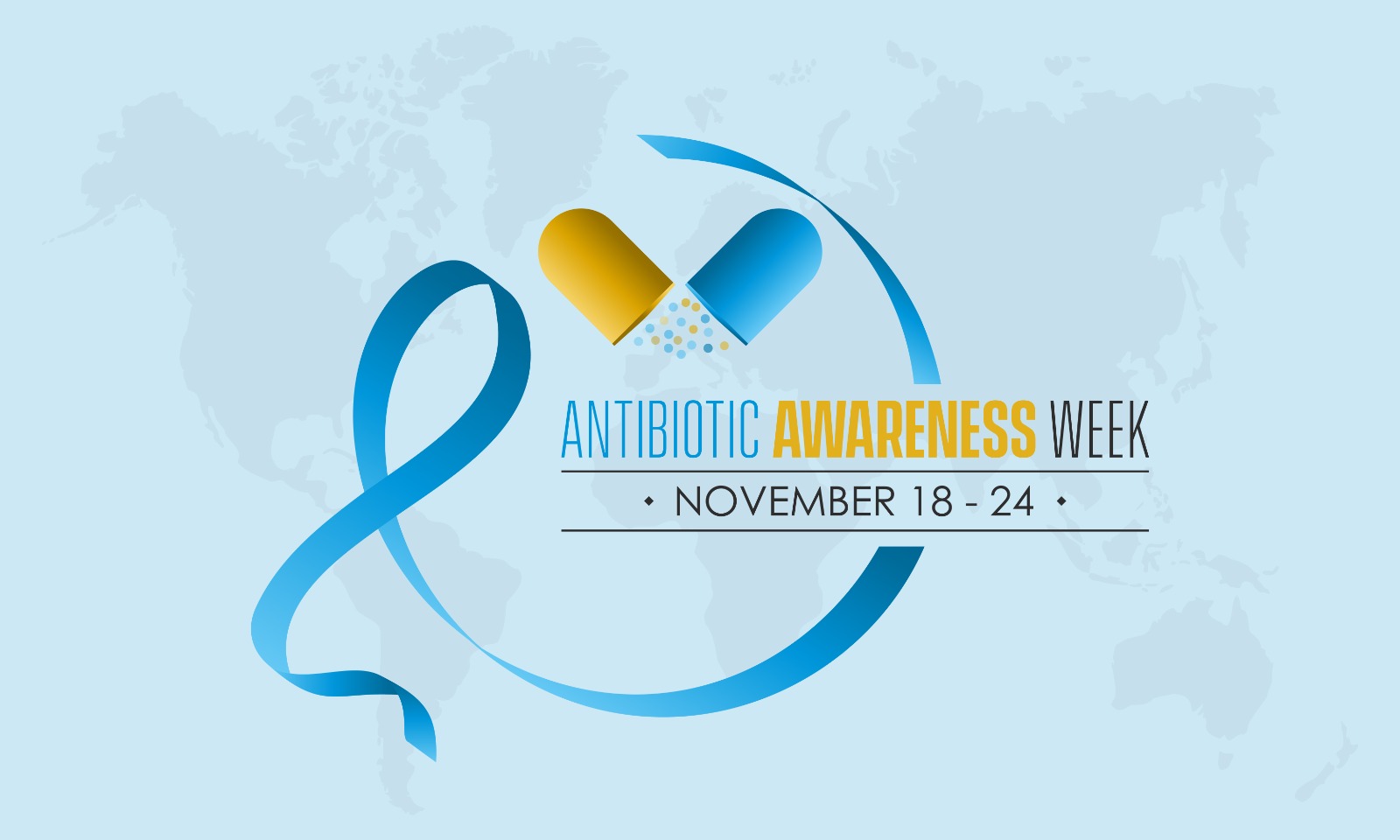Imagine this- you have a sore throat, some flu-like symptoms, cough, and fatigue with some phlegm formation too. You get worried because the symptoms don’t seem to go away in a couple of days and it has started to affect your routine negatively. So, you decide it is time to pop some pills and get right back to work. If you continue taking antibiotics often in the same manner, even for viral infections, you are setting yourself up to become resistant to antibiotics in the future. Then what happens?
World Antimicrobial Awareness Week (WAAW)
To combat this worldwide phenomenon, especially in India- which has some of the highest numbers of cases of AMR (antimicrobial resistance) in the world, this awareness week needs more focus to help achieve its main goal- to help people understand how and why antibiotics are used and also to show them when antibiotics must NOT be used. This way, antibiotics will still work when prescribed for certain infections. This issue of resistance has become much more prolific after the COVID-19 pandemic, due to indiscriminate and unnecessary usage of antibiotics for a viral infection. Some infections get so out of hand that they cannot be treated, in which case they are termed ‘superbug infections’.
The WAAW or World AMR Week can be thought of as an antibiotic awareness campaign in its truest essence. In India, over 4.95 million individuals lost their lives due to AMR in 2019 and the numbers are only higher at present. Antibiotics are commonly prescribed to beat a handful of pathogens that cause conditions like TB, abdominal and peritoneal infections, diarrhea, and UTIs respectively.
The Theme For WAAW 2024
This year, the theme is ‘Educate. Advocate. Act Now!’ This ties in very well with the fundamental teachings of this campaign. At present, this weekly event has been renamed The World AMR Week by the WHO in 2023. It was first initiated in 2015 and since then has become a global event to help policymakers, doctors and the public understand the dangers of unregulated antibiotic usage.
Reasons For AMR To Occur
Antimicrobial resistance can occur due to a variety of reasons:
● Wrong usage of antibiotics for viral infections.
● Using antibiotics that have been prescribed for someone else
● Antibiotics work in very specific ways and they are of different types- broad spectrum and otherwise. A doctor will be able to help prescribe the right kind for your condition and symptoms.
● Following proper hygiene and cleanliness when not feeling well or for wound care is also important and can reduce the probability of you having to use other drugs to get better.
● In India, the pharma industry is not highly regulated.
● High amounts of pesticide usage can exacerbate this issue in the population over a long period.
Conclusion
When you require antibiotics to treat an infection, they won’t work and your symptoms will just get worse, leading to hospitalization or other complications in the worst-case scenario. So, here, you have two major reasons why resistance can occur- overuse or taking them too often and misuse- using them in the wrong way. The dangers of antibiotic resistance are simple but can have lasting effects on everyone involved. So, don’t be pill-happy, and see if you can cope with your symptoms with some rest and much-needed TLC.
FAQs
1) When is World AMR Week celebrated every year?
World AMR week was formerly known as World Antibiotic Awareness Week (WAAW) and is celebrated from November 18-24 every year.
2) Why is AMR a burgeoning health issue?
AMR can render future treatment of bacteria, fungi or viruses completely useless, leaving you open to medical complications and prolonged hospital stays or even death in extreme cases.
3) What are the main reasons for AMR in India?
Doctors may prescribe antibiotics while waiting for test results even if they suspect it is a viral infection, because many people are not willing to wait to get better. There is also the wrong notion that antibiotics can treat every medical condition.
4) How can doctors help in this campaign?
Doctors and nurses can talk to their patients and give them options and not feel pressured to prescribe antibiotics just because the patient wants to feel better soon. Antibiotics need a prescription for purchase- this system needs to come into force. Pharmacists also play a big role in this way.
5) Has the Indian government come up with any initiative to combat AMR?
Yes, we have the National Action Plan (NAP) which is trying a multi-pronged approach to deal with AMR- to help people understand about cleanliness and proper sanitation, to educate doctors and other caregivers to prescribe antibiotics only when needed and to help people understand what AMR is and how harmful it can be for them in the future.




